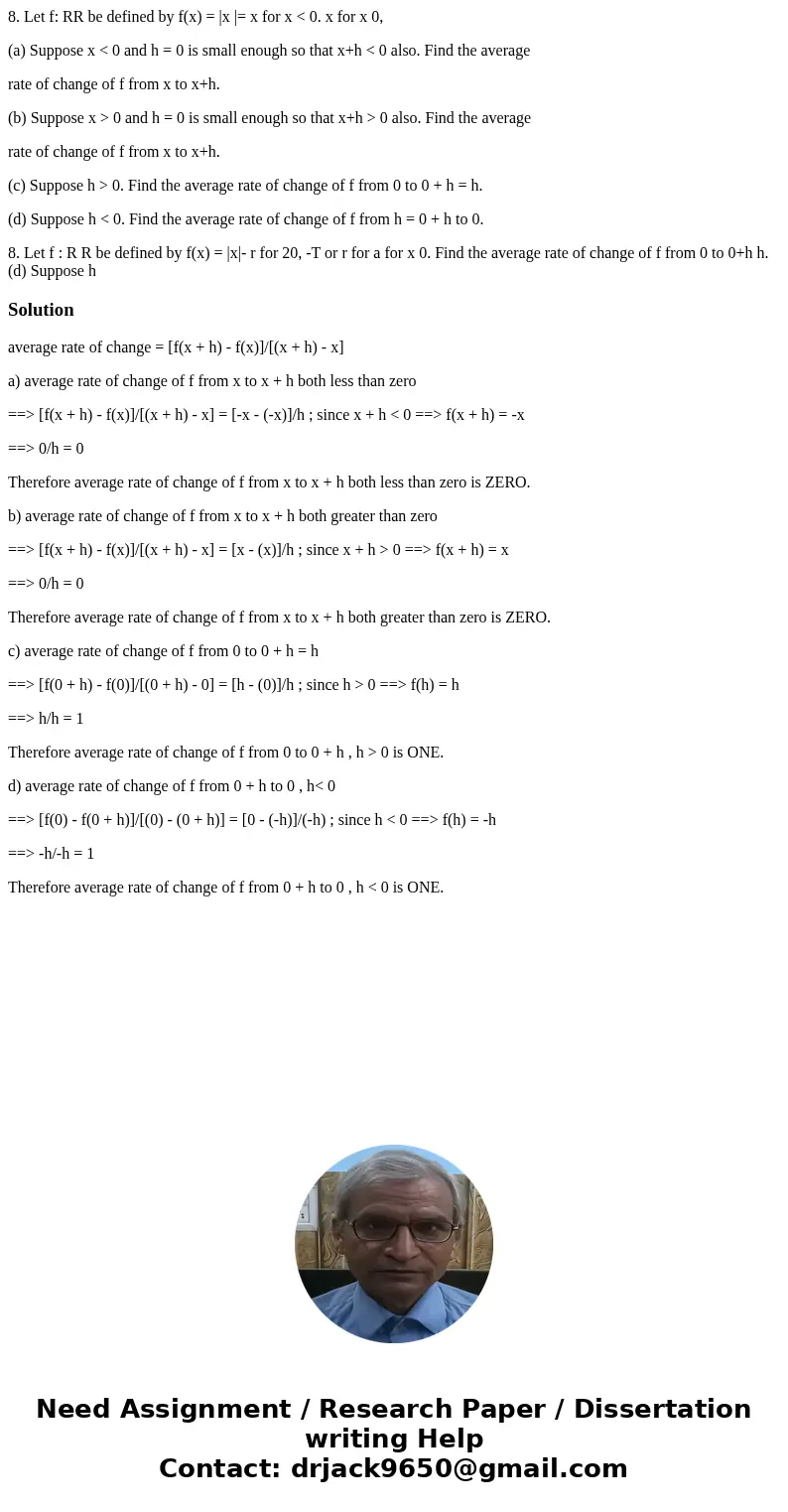8 Let f RR be defined by fx x x for x 0 x for x 0 a Suppo
8. Let f: RR be defined by f(x) = |x |= x for x < 0. x for x 0,
(a) Suppose x < 0 and h = 0 is small enough so that x+h < 0 also. Find the average
rate of change of f from x to x+h.
(b) Suppose x > 0 and h = 0 is small enough so that x+h > 0 also. Find the average
rate of change of f from x to x+h.
(c) Suppose h > 0. Find the average rate of change of f from 0 to 0 + h = h.
(d) Suppose h < 0. Find the average rate of change of f from h = 0 + h to 0.
8. Let f : R R be defined by f(x) = |x|- r for 20, -T or r for a for x 0. Find the average rate of change of f from 0 to 0+h h. (d) Suppose hSolution
average rate of change = [f(x + h) - f(x)]/[(x + h) - x]
a) average rate of change of f from x to x + h both less than zero
==> [f(x + h) - f(x)]/[(x + h) - x] = [-x - (-x)]/h ; since x + h < 0 ==> f(x + h) = -x
==> 0/h = 0
Therefore average rate of change of f from x to x + h both less than zero is ZERO.
b) average rate of change of f from x to x + h both greater than zero
==> [f(x + h) - f(x)]/[(x + h) - x] = [x - (x)]/h ; since x + h > 0 ==> f(x + h) = x
==> 0/h = 0
Therefore average rate of change of f from x to x + h both greater than zero is ZERO.
c) average rate of change of f from 0 to 0 + h = h
==> [f(0 + h) - f(0)]/[(0 + h) - 0] = [h - (0)]/h ; since h > 0 ==> f(h) = h
==> h/h = 1
Therefore average rate of change of f from 0 to 0 + h , h > 0 is ONE.
d) average rate of change of f from 0 + h to 0 , h< 0
==> [f(0) - f(0 + h)]/[(0) - (0 + h)] = [0 - (-h)]/(-h) ; since h < 0 ==> f(h) = -h
==> -h/-h = 1
Therefore average rate of change of f from 0 + h to 0 , h < 0 is ONE.

 Homework Sourse
Homework Sourse